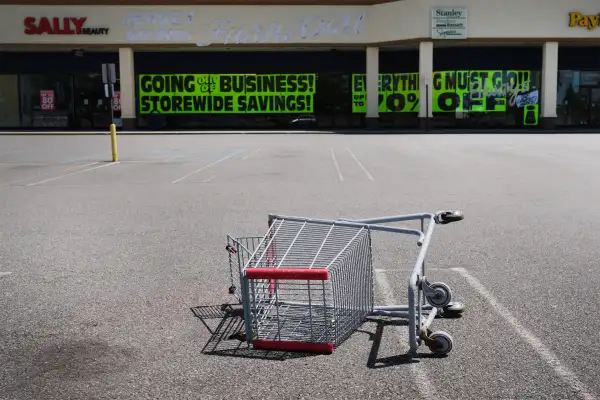Treating Pandemics Like Wars or Terrorist Attacks May Be the Key to Helping Small Businesses

The pandemic proved that insurance offers little help to small businesses slammed by shutdowns. Now insurers and Uncle Sam are working to fix the problem with solutions based on the government's response to the 9-11 terrorist attacks and World War II.
During COVID-19, millions of small-business owners like Ann Cantrell, the owner of Annie’s Blue Ribbon General Store in New York City, have essentially been uninsured against the pandemic's economic impact. Clauses in business-interruption policies rule out losses due to viruses. Speaking to a Congressional committee on behalf of the National Retail Federation, Cantrell said the discovery of the pandemic limitation in her policy led to her “darkest days” as a business owner, as she struggled to keep her store afloat.
At least one company has announced pandemic-friendly business-interruption insurance. Now further help is in the works for entrepreneurs like Cantrell, including two proposals that would see business and government cooperate to better cover small businesses in the next pandemic. Both plans are based on a consensus that insurance companies cannot alone cover business losses from a pandemic — and, even if they could, business owners might not be able to afford the policy premiums that would have to be charged.
Legislation inspired by 9/11
The first effort, led by Rep. Carolyn Maloney (D-NY), is modeled on the Terrorism Risk Insurance Act introduced after the 9/11 attacks. According to the National Association of Insurance Commissioners, that 2002 Act allowed the federal government to share monetary losses with insurers on commercial property and casualty losses due to a terrorist attack.
Maloney introduced the Pandemic Risk Insurance Act (PRIA) in Congress in May 2020. In her words, the legislation would require insurance companies to offer business interruption insurance policies that cover pandemics and create a federal Pandemic Risk Reinsurance Program to ensure “sufficient capacity to cover these losses and protect our economy in anticipation of a resurgence of COVID-19 and future pandemics.”
The federal funds would provide a so-called backstop to insurance companies. Losses from pandemic claims would be capped, with the government stepping in to cover any further red ink from writing the policies as a virus intensifies.
The legislation has attracted support from companies including McLennan and Marsh Insurance. But there’s also concern about the fairness and effectiveness of Maloney’s approach. Speaking to the insurance subcommittee of Congress, R.J. Leiman, senior fellow with International Center for Law and Economics, raised misgivings, despite describing himself as “someone who has long preached the gospel of risk-based insurance.”
In this case, he said, a “risk-based program could result in big tech firms that can work remotely,” and so suffer less harm, “paying the least and restaurants, community theaters, and churches paying the most. I don’t think that’s the outcome you want.” Leiman also points out that many small businesses do not currently carry business-interruption insurance, and so is concerned that the PRIA program would be less universal than is needed to avoid economic harm.
A World War Effort
An alternative proposal reaches back even further than 9/11, to the way the federal government addressed catastrophic business losses during the Second World War. Known as the Business Continuity Production Plan, the proposal calls for the US Treasury to set up a “federally subsidized revenue replacement product available to any business or non-profit in the country,” said Brian Kuhlmann, Chief Counsel with Shelter Insurance, one of the companies involved in the effort.
In remarks to the congressional subcommittee on insurance late in 2020, Kuhlmann said the plan would allow businesses “to purchase up to three months of up to 80% revenue replacement” in case of losses. The funding would be triggered via agreed formulas, he said, which would assure help comes more quickly than via a claims process. The program would be sold through insurance agents, which Kuhlmann says will allow their knowledge and skills to be used to sell coverage.
It’s not yet clear which alternative will prevail or might offer the best coverage at the lowest cost to small businesses. For her part, Maloney acknowledges the concerns about her proposed legislation, and told the congressional hearing that she welcomed input and was open to changing the bill in response to it.
More from Money
The Best Business Insurance of 2020
Why A Small Business Credit Card Is Essential If You’re Self-Employed
Small Businesses Can Finally Get Reimbursed for Pandemic Losses With This New Insurance
